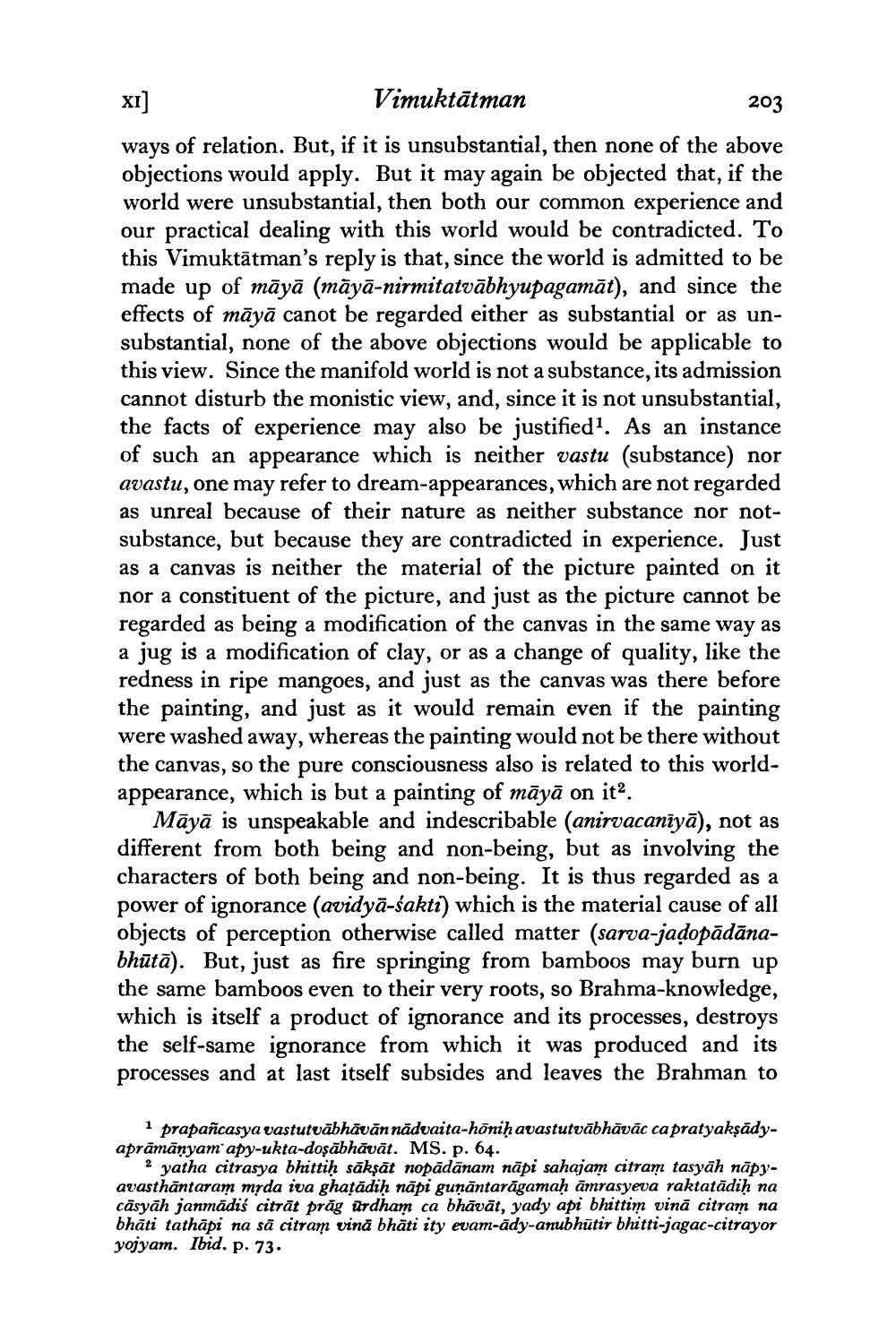________________
XI]
Vimuktātman
203 ways of relation. But, if it is unsubstantial, then none of the above objections would apply. But it may again be objected that, if the world were unsubstantial, then both our common experience and our practical dealing with this world would be contradicted. To this Vimuktātman's reply is that, since the world is admitted to be made up of māyā (māyā-nirmitatvābhyupagamāt), and since the effects of māyā canot be regarded either as substantial or as unsubstantial, none of the above objections would be applicable to this view. Since the manifold world is not a substance, its admission cannot disturb the monistic view, and, since it is not unsubstantial, the facts of experience may also be justified'. As an instance of such an appearance which is neither vastu (substance) nor avastu, one may refer to dream-appearances, which are not regarded as unreal because of their nature as neither substance nor notsubstance, but because they are contradicted in experience. Just as a canvas is neither the material of the picture painted on it nor a constituent of the picture, and just as the picture cannot be regarded as being a modification of the canvas in the same way as a jug is a modification of clay, or as a change of quality, like the redness in ripe mangoes, and just as the canvas was there before the painting, and just as it would remain even if the painting were washed away, whereas the painting would not be there without the canvas, so the pure consciousness also is related to this worldappearance, which is but a painting of māyā on it?.
Māyā is unspeakable and indescribable (anirvacanīyā), not as different from both being and non-being, but as involving the characters of both being and non-being. It is thus regarded as a power of ignorance (avidyā-sakti) which is the material cause of all objects of perception otherwise called matter (sarva-jadopādānabhūtā). But, just as fire springing from bamboos may burn up the same bamboos even to their very roots, so Brahma-knowledge, which is itself a product of ignorance and its processes, destroys the self-same ignorance from which it was produced and its processes and at last itself subsides and leaves the Brahman to
1 prapancasya vastutvābhāvān nādvaita-hõnih avastutvābhāvāc capratyakşādyaprāmānyam' apy-ukta-dosābhāvāt. MS. p. 64.
2 yatha citrasya bhittih sāksāt nopādānam nāpi sahajam citram tasyāh nāpyavasthāntaram mrda iva ghatadih napi gunāntarāgamah āmrasyeva raktatādih na cāsyāh janmädiś citrāt prāg ürdham ca bhāvāt, yady api bhittim vină citram na bhāti tathāpi na să citram vină bhāti ity evam-ādy-anubhūtir bhitti-jagac-citrayor yojyam. Ibid. p. 73.




